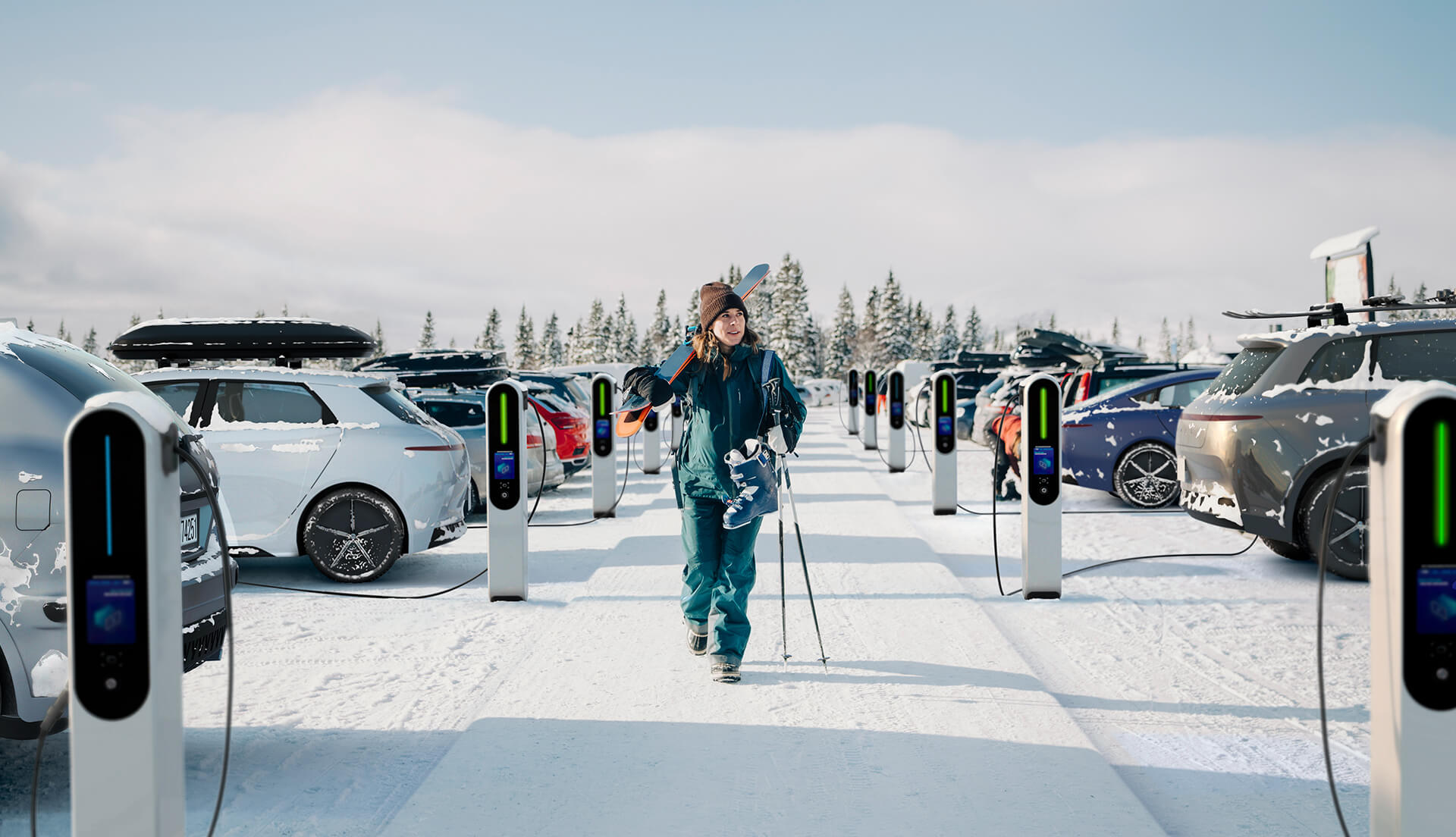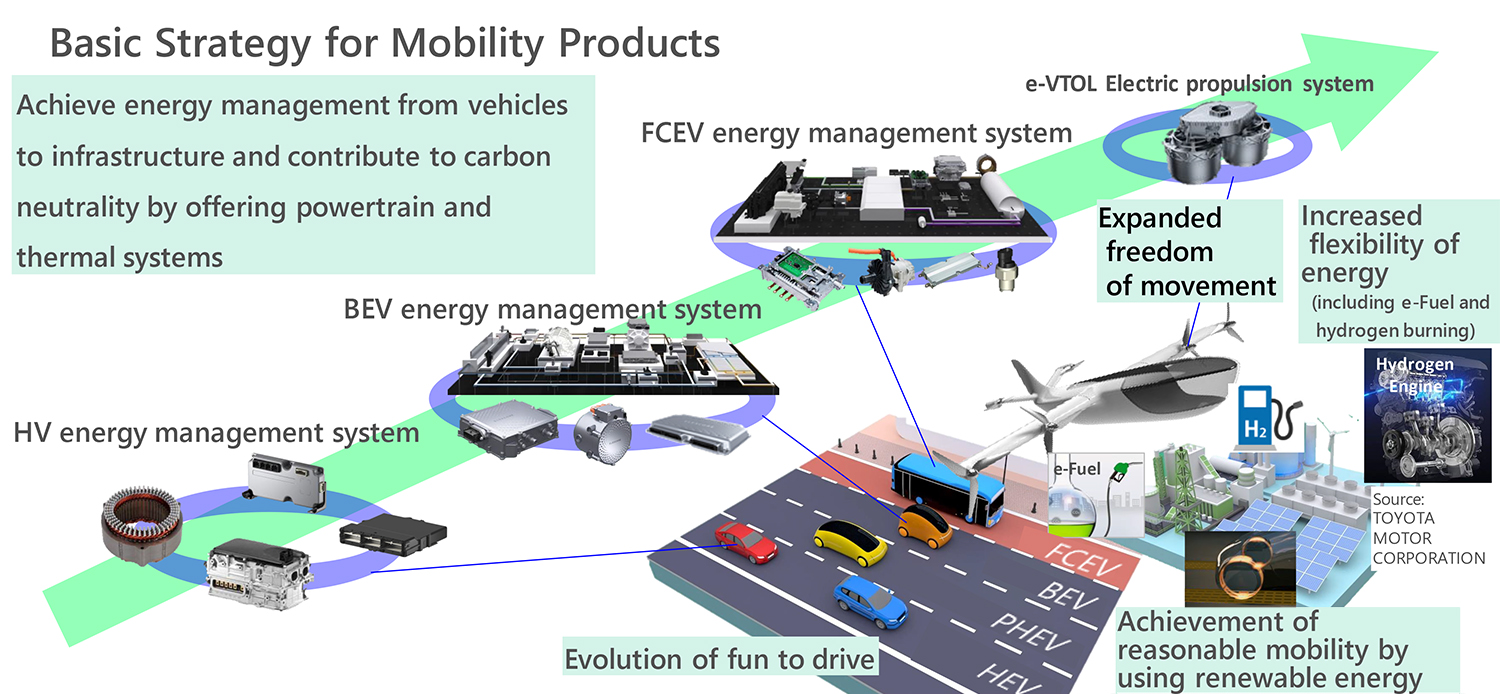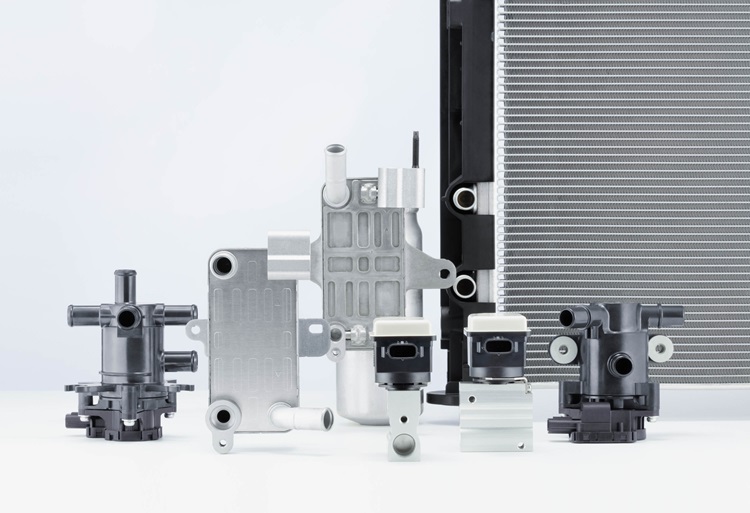Ultimate Fuel Consumption Performance
Basic Stance
To become a world leader in the provision of products that conserve energy and contribute to the reduction of CO2 emissions, DENSO will develop technologies that help improve the fuel efficiency of all of its products, including engine control technologies. We will also promote the development of new technologies and renewable energy, such as biofuels and hydrogen.
Specific Initiatives
Product use represents the stage with the highest CO2 emissions in the automobile life cycle. Thus, to help prevent global warming, it is important to increase fuel efficiency through the use of lightweight designs in automotive parts and ensure high combustion efficiency. In DENSO-related product areas, we are promoting advanced “improvements in fuel efficiency and less power consumption” through control that links systems installed in vehicles, such as engine management systems, car air-conditioners, and safety equipment.
In addition to improving fuel efficiency and reducing power consumption, which minimizes energy loss, we are implementing energy management initiatives for the efficient use of energy pertaining to mechanisms for the recovery and reuse of heat energy emitted from cars and kinetic energy lost when decelerating. Furthermore, we are working to popularize the electrification of vehicles, beginning with hybrid vehicles and fuel cell vehicles that are suited for making use of such energy-management mechanisms.
In these ways, we will realize energy management that connects vehicles with the greater society, centered on driving systems and thermal systems, thereby contributing to a carbon-neutral society.
Examples of Products
-
Inventors with SiC Power Semiconductors
By employing silicon carbide (SiC) power semiconductors, these investors help greatly reduce power loss, thereby improving the energy efficiency and driving distance of BEVs.
-
Highly Efficient Eco Heat Pump Systems
Our highly efficient eco heat pump systems are utilized for vehicle heating as they are able to efficiently extract outside air as a heat source using very little electricity, thereby greatly curtailing energy consumption. In this way, these systems help resolve the heating issues facing BEVs and contribute to their practical application in society.


















